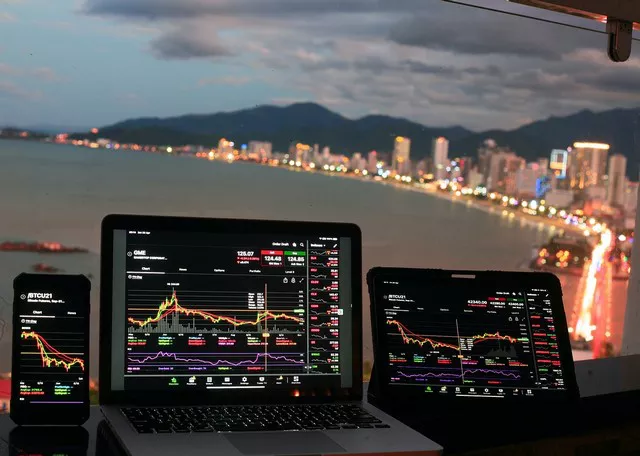In the dynamic world of finance and investing, futures play a significant role as a tool for managing risk and speculating on the future price movements of various assets. Futures contracts, commonly referred to as “futures,” have become an integral part of the stock market landscape.
The Basics of Futures
Futures are financial contracts that obligate the parties involved to buy or sell a specified asset at a predetermined price and date in the future. These contracts are standardized, traded on organized exchanges, and serve a wide range of purposes, from hedging against price fluctuations to facilitating speculative trading.
Understanding Futures Markets
Futures contracts are primarily traded on futures exchanges, such as the Chicago Mercantile Exchange (CME) or the Intercontinental Exchange (ICE). These exchanges provide a regulated platform for buyers and sellers to enter into futures contracts. They offer a variety of futures contracts on different asset classes, including commodities, financial instruments, and stock market indices.
The Role of Futures in the Stock Market
Futures play a crucial role in the stock market by offering several benefits to investors, traders, and market participants:
Risk Management: Futures allow market participants to hedge against price volatility. For instance, a stock investor concerned about potential market downturns can use stock index futures to protect their portfolio from losses.
Liquidity and Leverage: Futures markets are highly liquid, meaning that there are ample opportunities to buy and sell contracts. Additionally, traders can use leverage, which means they can control a larger position with a relatively small amount of capital.
Price Discovery: Futures prices often provide insight into market sentiment and future price expectations. Investors and analysts use futures prices to gauge market direction.
Speculation: Traders can speculate on the price movements of assets through futures contracts without owning the underlying asset. This allows for potential profit opportunities in both rising and falling markets.
Types of Futures Contracts
Futures contracts can be categorized into various types based on the underlying assets they represent:
Commodity Futures: These contracts are linked to physical commodities like oil, gold, wheat, and livestock. Commodity futures are widely used by producers, consumers, and investors to manage price risk.
Financial Futures: Financial futures encompass contracts based on financial instruments, such as stock market indices, interest rates, and foreign currencies. For example, the S&P 500 E-Mini futures contract tracks the performance of the S&P 500 index.
Currency Futures: Currency futures allow traders to speculate on exchange rate movements between two currencies. They are often used by international businesses to hedge against currency fluctuations.
Interest Rate Futures: These contracts are linked to interest rates and are used for managing interest rate risk. They are popular among institutions like banks and financial companies.
Trading Futures Contracts
Trading futures contracts involves several key components:
Contract Specifications: Each futures contract has specific terms, including the underlying asset, contract size, expiration date, and tick size. Traders must understand these specifications before entering a trade.
Margin Requirements: Futures trading typically requires traders to deposit an initial margin, which serves as collateral. Maintenance margins must also be maintained to cover potential losses.
Settlement and Delivery: Futures contracts can be settled in two ways—cash settlement or physical delivery. Most futures traders opt for cash settlement, where the difference between the contract price and the market price is settled in cash.
Liquidity: Liquidity varies among futures contracts. Highly traded contracts tend to have narrower bid-ask spreads, making them more cost-effective to trade.
Risks Associated with Futures Trading
While futures trading offers numerous advantages, it is not without risks:
Leverage Risk: While leverage can amplify profits, it can also magnify losses. Traders must exercise caution and have risk management strategies in place.
Market Risk: Futures markets are subject to price fluctuations, which can result in losses for traders. Market risk can be managed through proper analysis and hedging strategies.
Counterparty Risk: There is a counterparty involved in every futures contract. Traders face the risk of default by the counterparty, although exchanges typically have safeguards in place to minimize this risk.
Regulatory Risk: Changes in regulations can impact futures markets. Traders should stay informed about regulatory developments that could affect their trading activities.
Futures in a Diversified Portfolio
Investors often include futures in their portfolios to achieve diversification and enhance risk-adjusted returns. Futures can provide exposure to different asset classes, allowing investors to spread risk and potentially benefit from non-correlated assets.
Portfolio Diversification: By adding asset classes like commodities or currencies through futures, investors can reduce the overall risk of their portfolio, as these assets may move differently than traditional stocks and bonds.
Risk Management: Futures can serve as a hedge against adverse price movements in other portfolio holdings. For example, a portfolio manager could use equity index futures to protect against a stock market downturn.
Enhanced Returns: Skilled traders can use futures to capitalize on market trends and generate additional returns in their portfolios.
Conclusion
Futures are a versatile and powerful tool in the world of finance and investing. They offer a wide range of benefits, from risk management to speculative trading opportunities. However, they also come with their share of risks and complexities, making it essential for traders and investors to thoroughly understand how futures work before participating in futures markets. With the right knowledge and strategies, futures can be a valuable addition to a diversified investment portfolio, providing opportunities to navigate the ever-changing financial landscape.


